Benefits of Regular Dental Check-Ups
Regular dental check-ups are essential for maintaining good oral health for both kids and adults. These visits play a crucial role in preventing dental issues before they become serious problems. Taking your children to the dentist from an early age sets up a strong foundation for lifelong dental health. For adults, routine check-ups help to detect and address dental concerns early, preventing complications that could affect overall health.
Children are prone to common dental issues like cavities and gum disease, which can be detected and treated early through regular visits. Starting dental check-ups early helps children get used to the dentist, making them less likely to develop dental anxiety. Furthermore, preventive care such as fluoride treatments and sealants can help maintain healthy teeth and gums, reducing the risk of oral health problems.
Adults benefit from regular dental check-ups in many ways. Detecting issues like cavities, gum disease, and even oral cancer early can save time, money, and discomfort. There's a strong connection between oral health and overall health, with research showing links between gum disease and conditions like heart disease and diabetes. Regular dental visits can keep your mouth healthy and contribute to your overall well-being.
Maintaining regular dental check-ups provides numerous benefits and peace of mind knowing that your oral health is in good hands. From professional cleanings to personalized advice, these visits are an important part of a healthy lifestyle.
Preventive Dental Care for Kids
Early dental visits are crucial for children. Bringing your child to the dentist early helps them become familiar with the environment, reducing fear and anxiety. Starting these visits by their first birthday or when their first tooth appears sets a solid foundation for lifelong oral health.
Children face common dental issues like cavities and gum disease. Cavities are particularly common due to their love for sugary snacks. Regular dental check-ups can identify these problems early. Dentists can apply sealants and fluoride treatments to protect young teeth from decay. They also offer tips on proper brushing and flossing techniques that cater to children's needs.
Regular dental check-ups prevent cavities and gum disease by monitoring changes in your child's mouth. Dentists can catch signs of decay before it becomes a serious issue. Early detection and treatment of gum problems ensure that your child’s teeth develop healthily. These routine visits provide a proactive approach to dental care, keeping their smiles bright and healthy.
Maintaining Oral Health in Adults
For adults, dental check-ups are essential for detecting issues early. Problems like cavities, gum disease, and oral cancer are best treated when caught early. Regular visits help identify these issues before they worsen, saving you from invasive treatments.
Routine check-ups contribute to overall health. Poor oral health can lead to problems in other parts of your body. For instance, gum disease is linked to heart disease, diabetes, and respiratory problems. By maintaining good oral health, you also reduce the risk of these serious conditions.
There is a strong link between oral health and systemic health. Your mouth can show signs of other health issues. Conditions like diabetes can first manifest as gum problems. Regular dental visits allow your dentist to spot these signs, guiding you to seek medical attention if necessary. Keeping your oral health in check significantly benefits your whole body’s well-being.
Advanced Benefits for Both Kids and Adults
Regular dental check-ups provide advanced benefits that go beyond basic oral care. One significant advantage is professional cleaning and plaque removal. Dentists use special tools to thoroughly clean your teeth, removing hardened plaque that regular brushing can’t eliminate. This prevents tooth decay and gum disease, keeping your smile healthy.
Custom advice on brushing and flossing techniques is another key benefit. Dentists can show you the best ways to clean your teeth based on your unique needs. They can recommend suitable brushes, floss, and mouthwash, ensuring you have the right tools for effective oral hygiene.
Identifying and addressing bad habits also plays a crucial role. Dentists can spot signs of harmful behaviors like teeth grinding, nail-biting, or using your teeth as tools. By addressing these habits early, they help prevent long-term damage, such as tooth wear and jaw pain, keeping your dental health in check.
Long-Term Cost Savings and Peace of Mind
Preventive dental care offers significant cost savings in the long run. Regular check-ups detect issues early, allowing for simpler and less expensive treatments. Addressing problems like cavities and gum disease in their early stages prevents them from developing into more serious conditions that require costly procedures.
The role of dental insurance in regular check-ups is worth noting. Many dental insurance plans cover preventive care, including routine exams and cleanings. Utilizing these benefits ensures you stay on top of your dental health without worrying about financial strain.
Knowing that your oral health is monitored provides peace of mind. Regular dental visits mean that any potential issues are caught early. This ongoing monitoring helps maintain a healthy mouth and contributes to overall well-being. By staying proactive with your dental care, you ensure your smile stays bright and healthy for years to come.
Conclusion
Regular dental check-ups are essential for maintaining excellent oral health for both kids and adults. They provide numerous benefits, from preventing cavities and gum disease to promoting overall health and addressing bad habits. For children, early dental visits set a strong foundation, while adults reap the rewards of early detection and comprehensive care.
Routine check-ups also offer long-term cost savings by catching issues early and avoiding more expensive treatments. Dental insurance often covers these preventive visits, making it easier to keep up with your dental health. Most importantly, the peace of mind that comes from knowing your oral health is monitored regularly cannot be overstated.
At Wow Dental, we are committed to helping you and your family achieve and maintain optimal oral health. Contact us today to schedule your next check-up at our
dental clinic in Detroit and take the first step towards a healthier smile!
Share This Article










